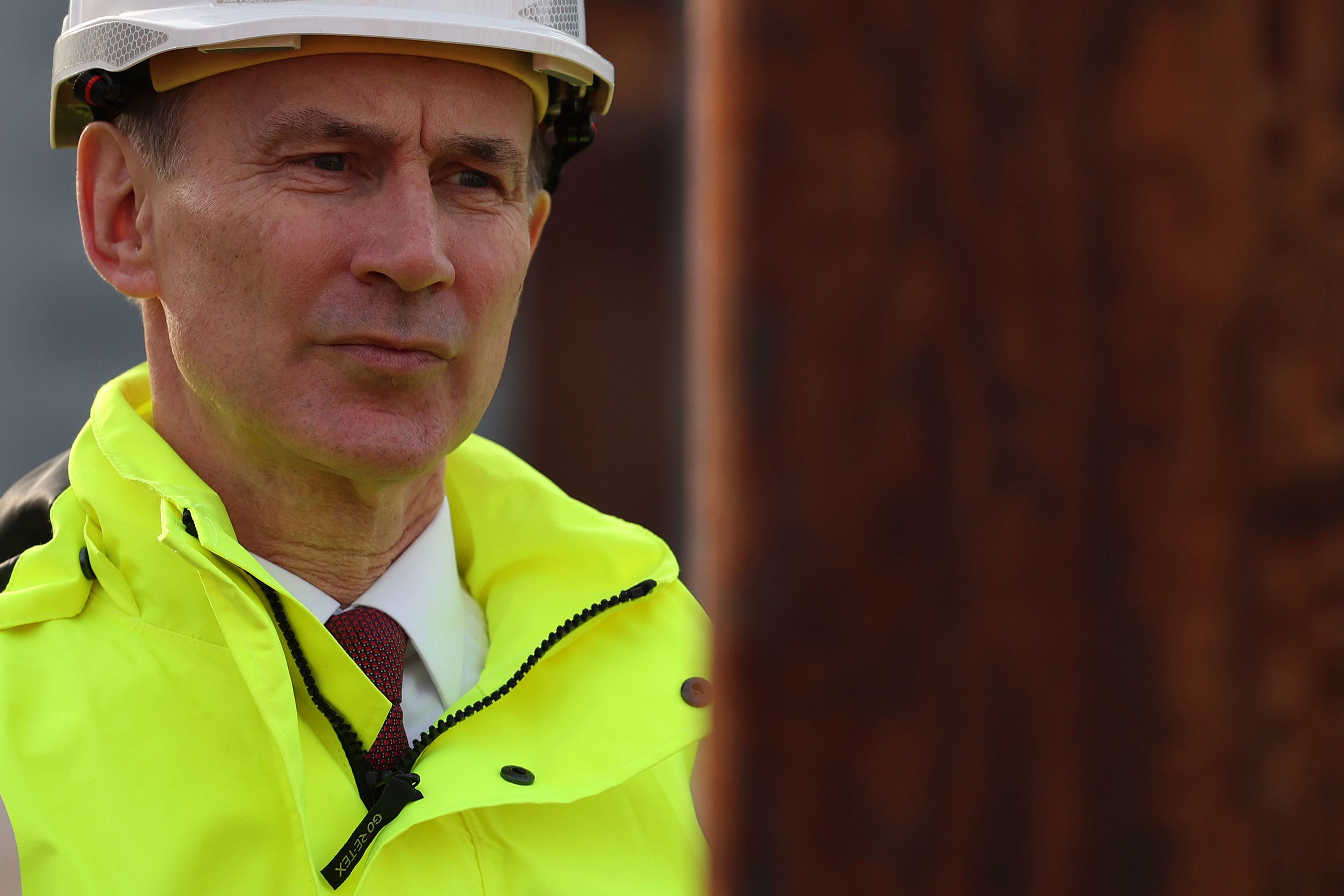IMF warns Jeremy Hunt against further tax cuts in March Budget
The IMF said any tax cuts would be ‘very challenging to achieve’ considering Britain’s ageing population and mounting debt pile
Your support helps us to tell the story
From reproductive rights to climate change to Big Tech, The Independent is on the ground when the story is developing. Whether it's investigating the financials of Elon Musk's pro-Trump PAC or producing our latest documentary, 'The A Word', which shines a light on the American women fighting for reproductive rights, we know how important it is to parse out the facts from the messaging.
At such a critical moment in US history, we need reporters on the ground. Your donation allows us to keep sending journalists to speak to both sides of the story.
The Independent is trusted by Americans across the entire political spectrum. And unlike many other quality news outlets, we choose not to lock Americans out of our reporting and analysis with paywalls. We believe quality journalism should be available to everyone, paid for by those who can afford it.
Your support makes all the difference.The International Monetary Fund (IMF) has warned Jeremy Hunt that he cannot afford to cut taxes in his March Budget.
The financial agency said any tax cuts would be “very challenging to achieve” considering Britain’s ageing population and mounting debt pile.
It said funding the transition to net zero and protecting the UK’s public services would need higher spending in the medium term than current government plans.

“It is in this context that staff advise against further tax cuts,” an IMF spokesman said.
Jeremy Hunt has since warned the cabinet that there will be less headroom for tax cuts in the spring budget than the previous autumn statement, because of "major structural weaknesses" in the economy.
In autumn, the chancellor reduced national insurance by two percentage points, but has now said that due to relatively low levels of productivity in Britain, anticipated tax cuts may be lower than expected.
The chancellor said “smart tax reductions” would help grow Britain’s ailing economy. He said it is “too early to know whether further tax reductions will be affordable, but said “we continue to believe that smart tax reductions can make a big difference in boosting growth”.
His plans expose the split between the government and the IMF, with Mr Hunt and the Treasury arguing in favour of tax cuts to fuel growth, and the international body claiming strong public services were needed to boost the economy.
Despite squeezed public finances, Mr Hunt has vowed a giveaway in March, claiming the government’s “careful management of the economy” means he can “start cutting taxes again”. His hopes were boosted last week as official figures showed government that borrowing was lower than expected.
The chancellor and Rishi Sunak want to lower taxes to draw a dividing line with Labour, arguing that Sir Keir Starmer would raise taxes if he wins the keys to Downing Street.
It is widely thought that the chancellor will opt for either a further cut to national insurance or lower the basic rate of income tax.
IMF chief economist Pierre Olivier-Gourinchas said: “There is a need to put in place medium-term fiscal plans that will accommodate a very significant increase in spending pressures.
“In the case of the UK, you might think of spending on healthcare and modernising the NHS; spending on social care; on education; you might think about critical public investment to address the climate transition; but also to boost growth.
"So, it’s very important to have in place medium-term fiscal plans that accommodate these pressures at the same time ensuring that debt dynamics remain stable and contained.
"That requires a combination of tax and spending measures to make sure that you can allocate the resources where they need to be allocated, but at the same time preventing your debt levels from increasing.
"In that context we would advise against further discretionary tax cuts as envisioned and discussed now."
Labour said the IMF warning was “yet more evidence of 14 years of Conservative economic failure”.
Shadow chief secretary to the Treasury Darren Jones said: “The Tories have left Britain with high debt, flatlining growth, high taxes and working people worse off.”
And the Liberal Democrats said the “damning” IMF verdict showed the government’s “failure on the economy”.
Lib Dem Treasury spokesman Sarah Olney said: “This Conservative Government is a disaster for our economy and needs to leave Downing Street before even more damage is done.”
It came as the IMF said Britain’s economy will grow slower than expected over the next two years and will be among the worst performers in the G7 group of advanced economies.
The body's economists expect UK growth to hit 0.6 per cent this year, and 1.6 per cent next.
It would make the economy the second-worst performer in the G7 this year and the joint third-worst performer in 2025.
The IMF's forecast for this year is unchanged since its past report in October, but has been downgraded by 0.4 percentage points for next year.
Join our commenting forum
Join thought-provoking conversations, follow other Independent readers and see their replies
Comments